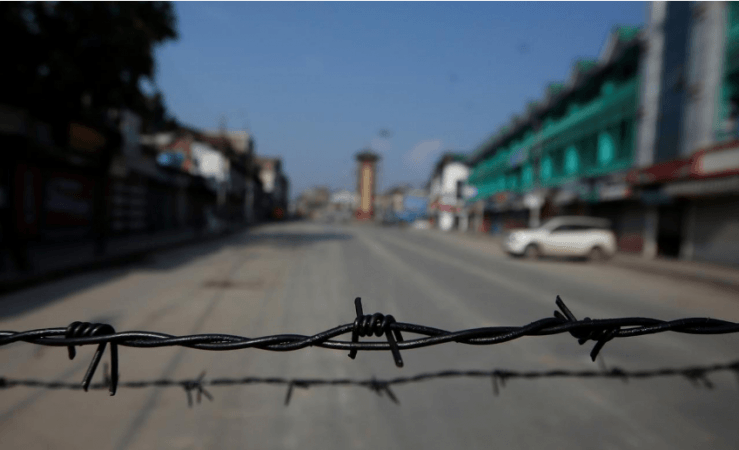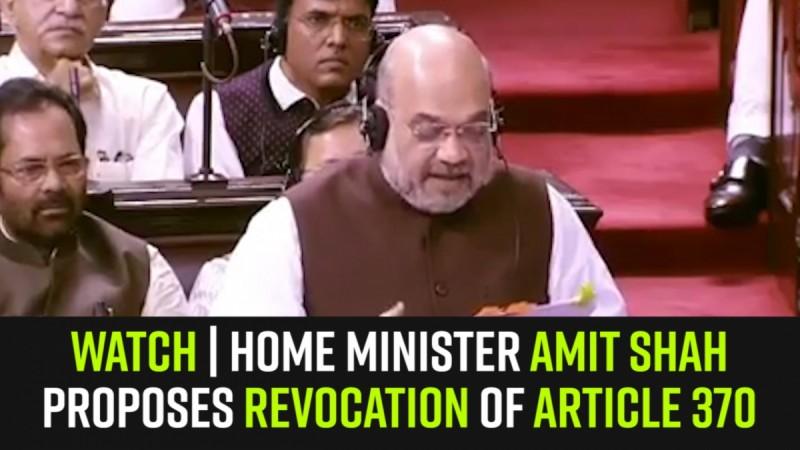
Jammu & Kashmir's bifurcation and change of status to Union Territory will be a game-changer for the region's economic development, some economists think. A global investor summit for the region now comprising the Union Territories of Jammu & Kashmir and Ladakh that Prime Minister Narendra Modi may inaugurate could turn out to be the healing touch for the mortified population, according to reports.
Home Minister Amit Shah is seen to have piloted the abrogation of the cardinal Article 370 and Article 35 A of the Constitution that gave special status to Jammu & Kashmir through a Presidential Order and formed two Union Territories in its place. J&K has been made a Union Territory in the mold of Delhi with an elected legislative assembly and Ladakh a Union Territory without an elected body.
The change in status from a state with a special status allowing some degree of autonomy to two Union Territories may accelerate economic development removing impediments to investment, a report in the Economic Times said citing the views of some economists.
About 10 percent of all central funds have gone to the state of J&K between 2000 and 2016 but private investment had remained below par due to the special provisions, official statistics show. The change in administrative status, the government believes, will have a positive impact on the ease of doing business as it would give industry ownership of establishments and will encourage hiring, the report says.
"These decisions will allow any individual or business that operates as per the laws of Union of India, to freely operate, under the same rules of business, in the union territories of J&K and Ladakh," the report quoted unidentified government officials as saying.

The restrictions imposed by the now redundant Articles 370 and 35 A also prevented professionals and experts from outside the state from taking up state government jobs, leading to a shortage of qualified staff for educational institutions as well, the government source cited.
Home Minister Shah referred to these apparent constraints during his speech to Parliament while introducing the motion of acceptance of the Presidential order that no industry could be set up because of the provisions and "tourism did not develop because of restrictions on land purchase and land price in the state did not rise".
The proposed investor summit will see major industrial groups unveiling concrete projects for investment in sectors including hospitality, pharmaceuticals, agro-processing, and healthcare. Industry stalwarts say the changes in administrative structure have the potential to bring in substantial investments, the report adds.
"We are pretty convinced that this will help us get a lot more investment due to the fundamental change when it comes to ownership of property. The areas of tourism and agro-processing will get a boost," said Sameer Gupta, president, Confederation of Indian Industry (CII) northern region, who participated in pre-summit meetings with the J&K government.
Industry officials say sectors like pharmaceuticals, agro-processing, tourism, education, and healthcare will receive a boost due to inherent demand. "It would open up the flow of investment into the state in sectors like tourism, real estate, handicrafts, horticulture, and food processing. The multiplier impact would increase employment opportunities and contribute to India's all-round prosperity," Assocham president BK Goenka said.









!['Had denied Housefull franchise as they wanted me to wear a bikini': Tia Bajpai on turning down bold scripts [Exclusive]](https://data1.ibtimes.co.in/en/full/806605/had-denied-housefull-franchise-they-wanted-me-wear-bikini-tia-bajpai-turning-down-bold.png?w=220&h=138)



